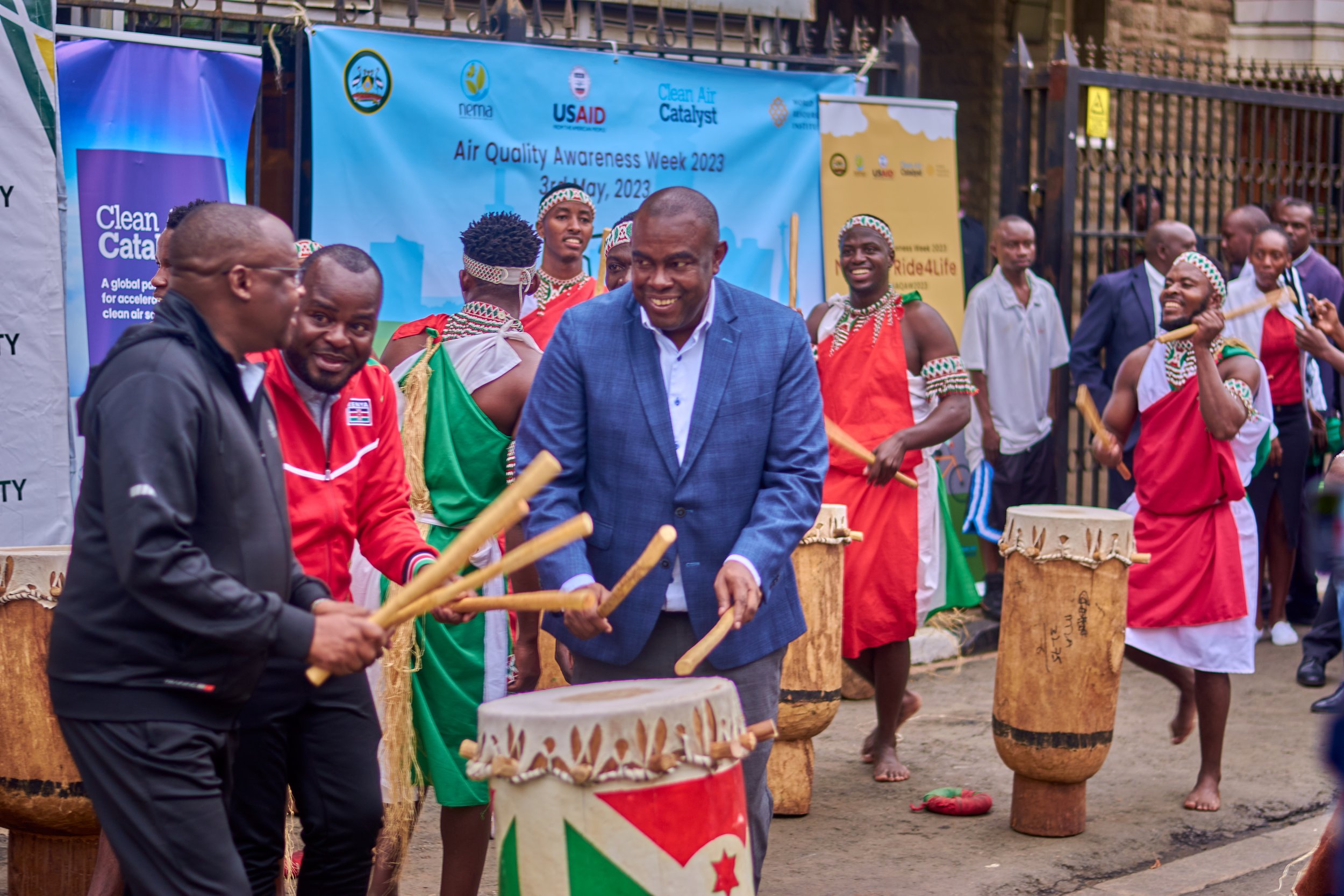
Nairobi,
Kenya

In Nairobi, rapid population growth comes with increased emissions and exposure to toxic air pollutants—heightening the risk for chronic disease and socioeconomic harm.
The worst air quality is found in informal settlements, where more than 70% of Nairobi residents live. Understanding and addressing the disproportionate impact of air pollution on vulnerable populations, particularly women and children, is critical to the city’s future.

Partners in Nairobi, Kenya
With the support of USAID Kenya, Clean Air Catalyst is working with Nairobi City County Government, the National Environmental Management Authority, and local scientists to bolster air quality monitoring and data collection in the city’s most impacted communities.
We are also coordinating input from community, industry, health and business leaders through the Nairobi Air Quality Working Group (N-AIR). Our aim is to build a shared understanding of the sources and root causes of Nairobi’s air pollution in order to identify equitable clean air solutions.
Understanding Nairobi’s Air
This report offers a comprehensive overview of what is known about Nairobi’s air pollution landscape through a systematic review of existing monitoring studies and scientific literature. It aims to provide researchers and policymakers with up-to-date information on pollution sources and impacts and to identify the data and capacity gaps that need to be addressed in order to develop comprehensive actions to tackle the city's air pollution issues.
Project Leader
George Mwaniki
Head of Air Quality, WRI Africa
Principal Investigator, Clean Air Catalyst in Nairobi
Email: george.mwaniki@wri.org
“The atmosphere is one of the most neglected global commons, which has led to air pollution being the number one environmental cause of premature death globally. This gives me great motivation to work in this sector and develop methods of addressing the challenge.”




